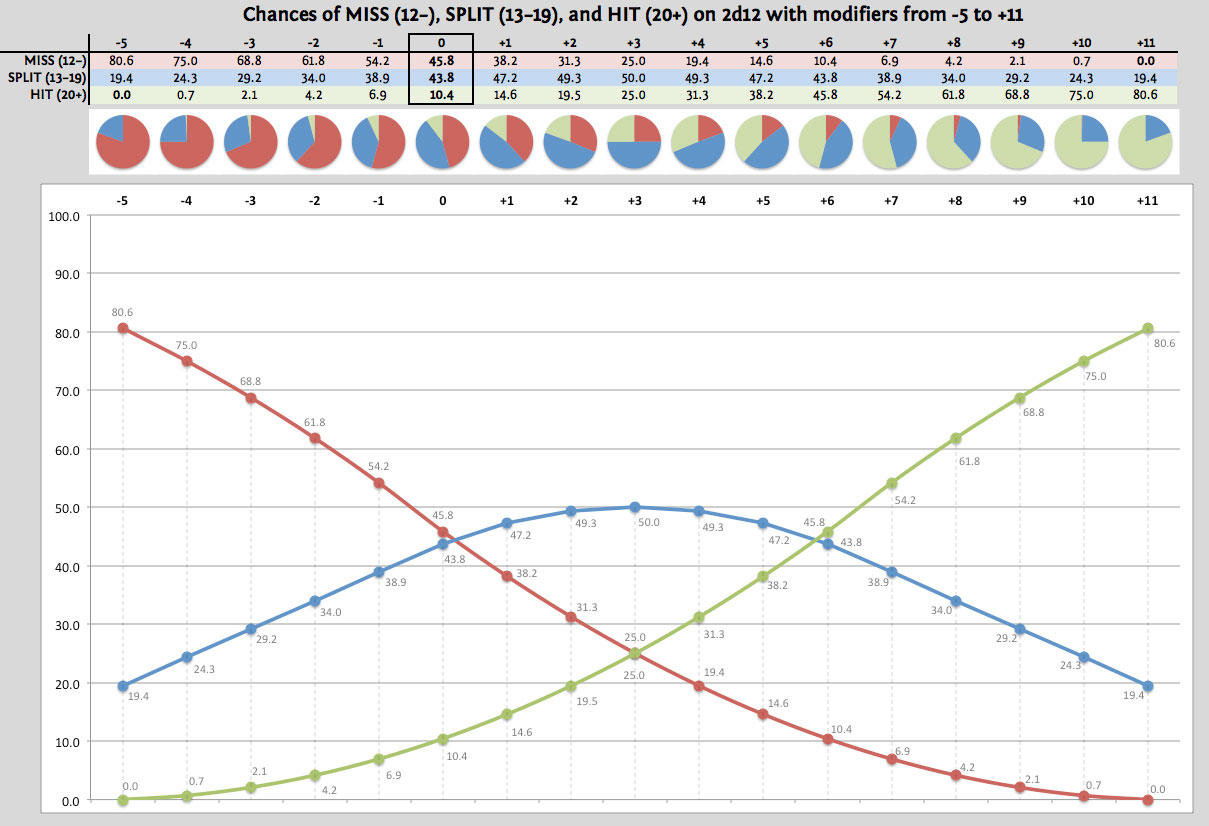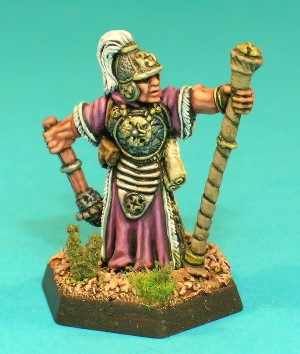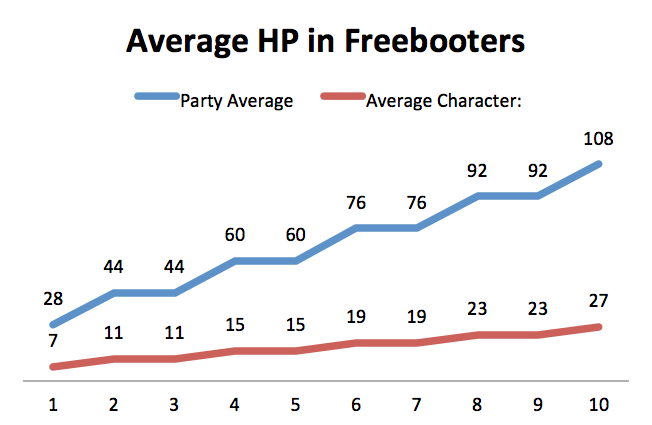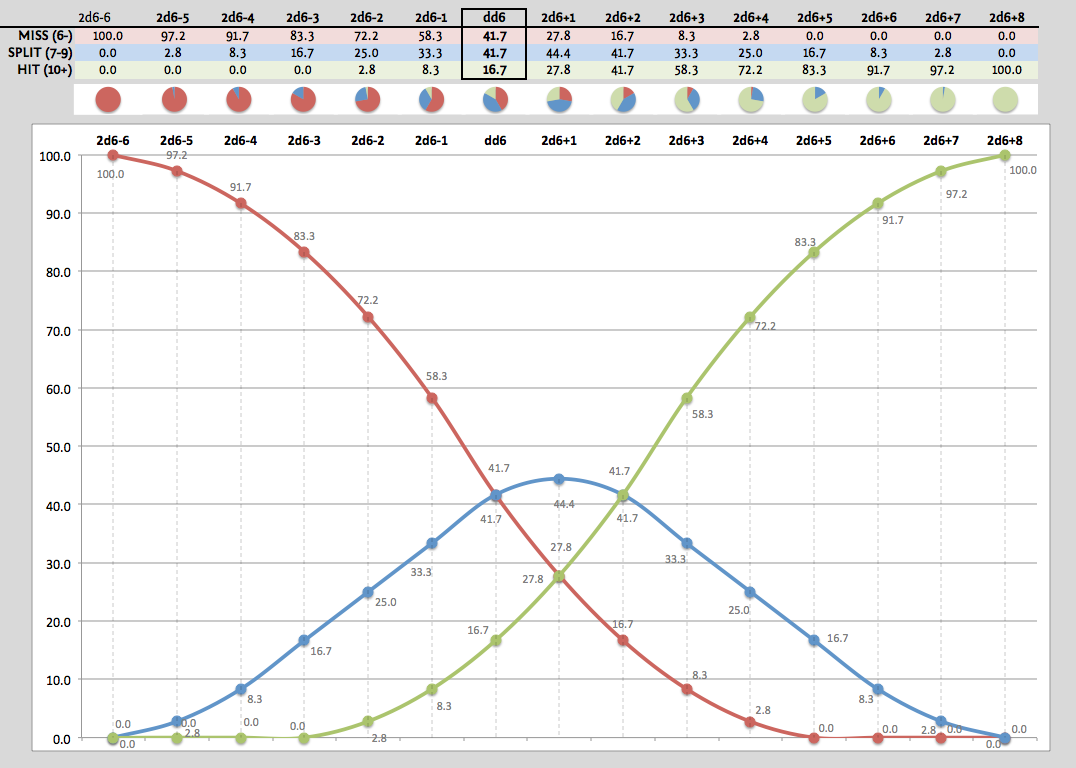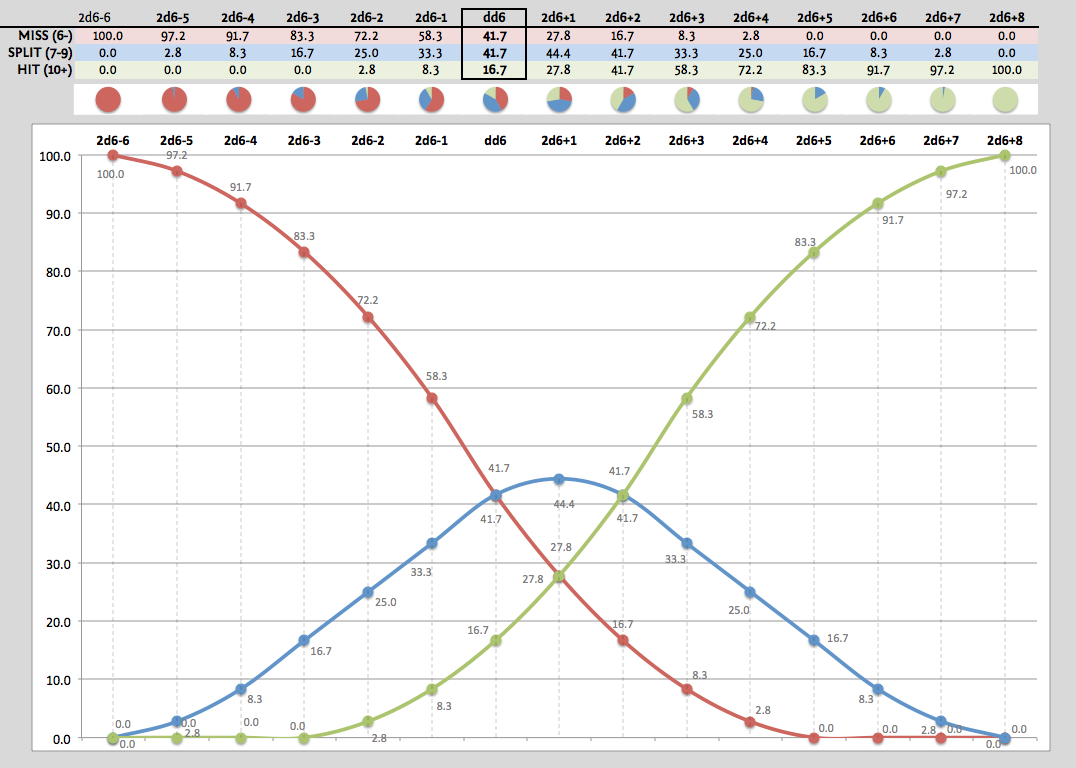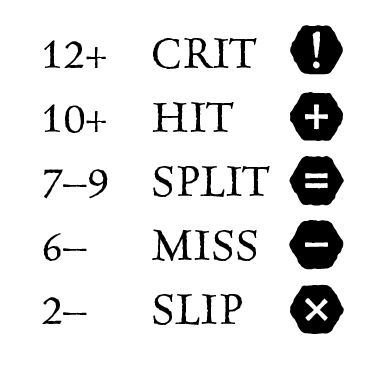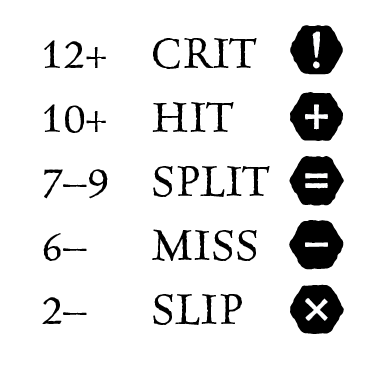Feel free to throw dice at me, but with our games being very campaign-oriented (vs. one-shot/short multi-shot), we’ve started playing Freebooters on the Frontier with 2d12 instead of 2d6!
The finer granularity leaves more “headroom” to accommodate Freebooters’ inevitable stacking of ability score bonuses, move effects, class bonuses, spell effects, magic items, and other boons (and banes) without the game becoming unplayable due to characters never failing at their “main thing” (or ANYTHING as players learn to game the system.)
Some aspects of the base AW engine (such as “6– / 7–9 / 10+”) need to be re-scaled, but leaving class abilities and move effects as written for 2d6 makes a long-term game more fun and challenging. The scale for ability score modifiers took some time to tune; it is NOT a straight doubling) and in fact, we ultimately settled on a core mechanic that looks right but is in fact more “cruel” (mathematically speaking): 12– / 13–19 / 20+. This results in a feel that’s more OSR-like, with some cool side effects too, such as a more even progression of character level across repeated sessions and a tendency for more “Split” roll results in general (the middle bracket of the mechanic).
You may have seen my recent 2d6 AW math charts. Here is one showing how things work with 2d12, plus a set of pie charts to help you immediately visualize the difference. The idea is to get more mileage out of thespaces between the canonical plusses and minuses!
I’m hoping to publish my “d12 World” conversion kit this summer.

